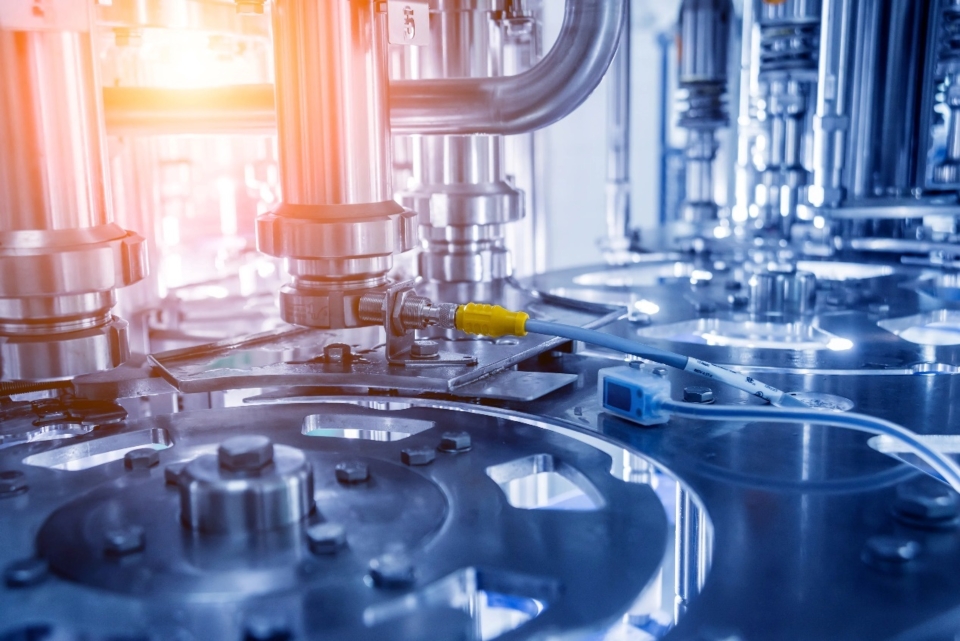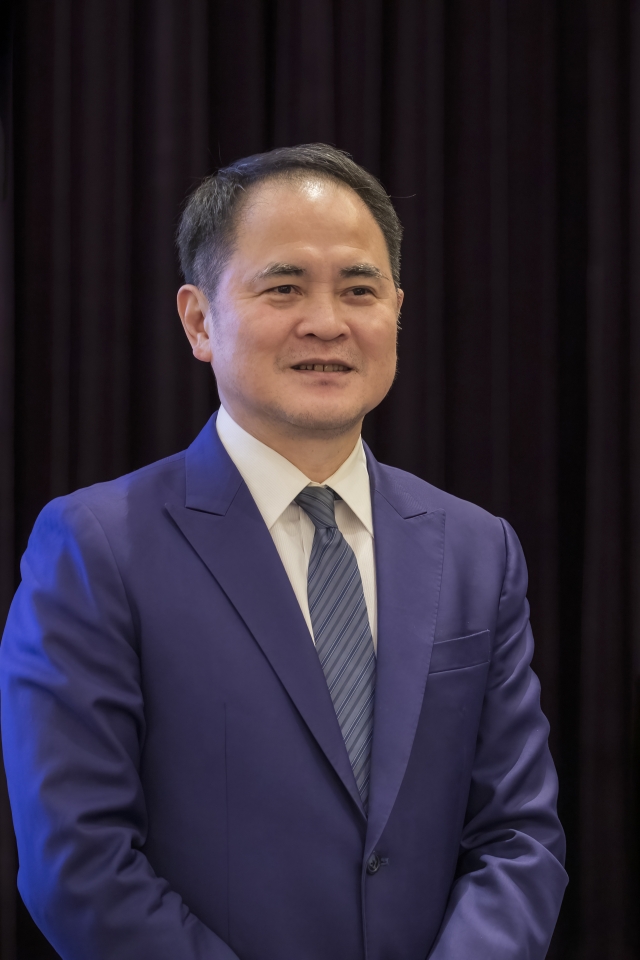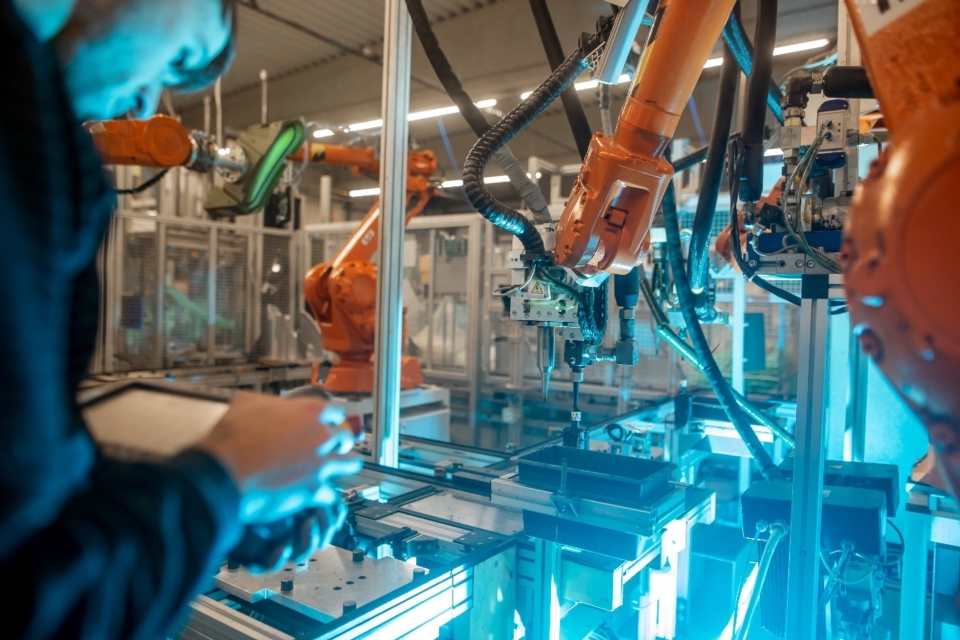Taiwan's Machinery Industry Envisions a Smart Future
2024/09/02 | By Andrew Hsu
A Shift in Focus
The machinery industry, a cornerstone of national industrial progress, has long supplied the essential products that fuel modern life. Yet, over the past few decades, this once-stalwart sector has encountered challenges unlike any before. The "White Paper on Taiwan Machinery Industry Development" released by the Taiwan Association of Machinery Industry (TAMI) in 2024 reveals that pivotal trends in politics, economics, society, and the environment are now reshaping the future of this vital industry.
In recent years, amid escalating international and regional conflicts, many nations have turned to economic and trade measures as their primary tools of counteraction. In response to these unpredictable risks—ranging from natural disasters and pandemics to fluctuations in supply and demand—governments worldwide are implementing diverse policies aimed at bolstering the resilience and autonomy of their industries to safeguard economic development and national security.
Simultaneously, society is undergoing profound structural changes. Aging populations, declining birth rates, and shifting work ethics among younger generations are leading to a shrinking labor force. Compounding these challenges is the growing threat of extreme weather, which has prompted over 150 countries to prioritize net-zero emissions in their national policies. These combined forces are driving significant technological advancements in the machinery industry, necessitating rapid adaptation and innovation to meet the demands of a changing world.
In response to the evolving macro-environment, technological transformation within the machinery industry has become not just a trend, but a necessity. Central to this transformation is "digitalization," where businesses leverage digital technologies to drive innovation in products and services, ultimately creating more competitive business models. For the manufacturing sector, the most significant advantage of digital transformation lies in its ability to facilitate smart manufacturing. This approach not only strengthens operational resilience but also advances low-carbon, green manufacturing practices, paving the way for net-zero emissions and reducing dependence on human labor.

Over the past decade, various national initiatives, including the U.S. Advanced Manufacturing Partnership 2.0, Germany's Industry 4.0, China's Made in China 2025, and Taiwan's Smart Machinery, have underscored the critical need for smart manufacturing. These policies collectively represent a paradigm shift in the global manufacturing industry, signaling a future where technology-driven innovation is at the forefront of industrial development.
2035: A Vision Unfolds
Earlier this year, TAMI and the Industrial Technology Research Institute (ITRI) released the latest edition of the “White Paper on Taiwan Machinery Industry Development,” setting forth three ambitious goals for Taiwan's machinery industry by 2035: achieving an annual output value of NT$3 trillion, attaining a value-added rate exceeding 35%, and reaching a per capita output value of NT$6 million. To meet these targets, TAMI recommends a strategic focus on supporting customers in adopting smart manufacturing through digital and intelligent machinery products and components, alongside the integration of production lines and systems. Additionally, the industry is encouraged to enhance quality through intelligent digital applications and to bolster customization and flexible production capabilities.
To gain deeper insights into the smart manufacturing concepts championed by TAMI, Economic Daily News/CENS recently interviewed David Chuang, the Chairman of TAMI and General Manager of Dahlih Machinery Industry Co., Ltd. Chuang highlighted that the foundational direction for the smart manufacturing of machinery products was established nine years ago during the tenure of former TAMI Chairman Ko Pa-Hsi. With support from the Industrial Development Administration (IDA) under the Ministry of Economic Affairs (MOEA) for Industry 4.0 and the Smart Manufacturing initiative, TAMI brought together industry leaders, academia, and research institutes to form the Smart Machinery Promotion Committee, which has successfully achieved its planned milestones.
In recent years, TAMI has actively aligned with government policies to robustly promote smart machinery and manufacturing. Through leveraging policy resources, the machinery industry has developed advanced equipment with smart functionalities, harnessed strong technological expertise and domain knowledge to create a distinctive system integration approach, and worked tirelessly to elevate Taiwan’s Smart Machinery presence on the global stage.
To further advance the "Five Plus Two Industry Innovation Plan" initiated by former President Tsai Ing-wen, the Taiwan government established the Smart Machinery Promotion Office in Taichung. David Chuang, as a key member of this office, emphasized his dual role as both a liaison between the government and the industry and a conduit for sharing the committee's initiatives with TAMI's member manufacturers. In addition, TAMI has formed specialized committees for each category of machinery products, including machine tools, controllers, robots, and plastics and rubber machinery. These committees are tasked with staying at the forefront of industry trends and regularly organizing exchanges between government officials with relevant expertise and industry professionals.

Furthermore, Chuang elaborated on the significant role that the Taiwan government and the Smart Machinery Promotion Office play in supporting the adoption of new technologies. He highlighted the collaborative efforts among ITRI's Mechanical and Mechatronics Systems Research Laboratories, the Precision Machinery Research & Development Center (PMC), the Ministry of Science and Technology, and academic institutions. These partnerships provide essential knowledge, theoretical frameworks, and financial support to facilitate the integration of new technologies.
For instance, this year's "Transformation of Smart Machinery in AI Practice and International Cooperation Forum," directed by the Department of Industrial Technology (DOIT) of the MOEA and hosted by PMC, is a prime example of such collaboration. Another key initiative is the "5G Innovative Application Diffusion Plan," funded by the Ministry of Digital Affairs (MODA)'s Administration for Digital Industries and in partnership with ITRI.
Chuang also underscored the importance of consistent communication between the government and TAMI, noting that they hold intensive meetings to ensure a smooth exchange of information. Recent discussions have particularly focused on the role of sensors in advancing smart machinery. However, Chuang was clear in stating that regardless of the resources allocated to intelligent machinery development, the manufacturers' own efforts remain the critical factor for success.
Chuang highlighted the inevitable convergence of digital technology within the machinery manufacturing sector, stressing that every manufacturer will eventually face the challenges brought by technological advancements. He warned that without adopting and integrating new technologies, manufacturers risk falling behind in product precision and efficiency, ultimately losing their competitive edge. TAMI, in its role as a key industry liaison, ensures that manufacturers stay informed of the latest technological trends.

Discussing the growing influence of AI, Chuang cautioned against adopting AI merely for the sake of novelty, asserting that its implementation should be driven by practical needs rather than marketing gimmicks. Despite this, he noted that Taiwanese manufacturers have already begun leveraging big data for production optimization, including data collection, fault anticipation, and machine condition monitoring. AI can be practically applied to provide solutions, offering significant, albeit incremental, benefits—especially in the machinery industry, where precision is paramount.
Chuang also highlighted the considerable advantages of applying AI to the lifecycle management of production equipment, underscoring its potential to drive meaningful improvements in efficiency and operational accuracy.
Chuang emphasized that the pursuit of net-zero carbon emissions is already a fundamental goal for the machinery industry. Even in the absence of international mandates, addressing issues such as excessive energy loss, heat generation, and operational noise has become essential to improving machinery design. These factors are crucial for maintaining competitiveness, as manufacturers and customers increasingly demand higher efficiency and lower environmental impact.
While international regulations indeed act as an additional impetus for innovation, Chuang highlighted that the rise of manufacturing industries in emerging markets underscores the need for product differentiation. In an environment marked by excess capacity and price competition, developing unique, high-value products is essential for securing a competitive edge and ensuring long-term market survival.




